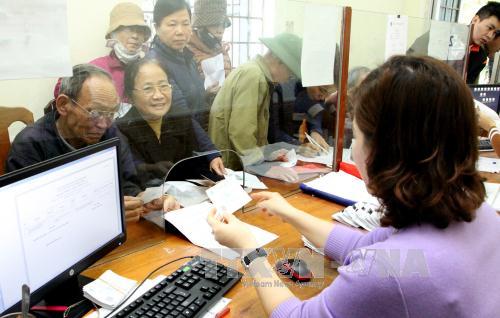I have heard that since 2021, the retirement age for officials and public employees and workers has been raised compared to the current age. Does this increase in retirement age affect early retirement?

Illustration image
LAW SECRETARY editorial board offers the following clarification on this matter:
According to Point a, Clause 1, Article 219 of the Labor Code 2019, amending Article 54 of the Social Insurance Law 2014, from 2021, employees must have completed 20 years of social insurance contribution; males must be 60 years and 3 months old; females must be 55 years and 4 months old (thereafter, increasing annually by 3 months for males; 4 months for females to reach 62 years for males by 2028 and 60 years for females by 2035). Hence, the conditions for employees to retire before the statutory retirement age from 2021 will also be tightened correspondingly.
To be specific, according to Point b, Clause 1, Article 219 of the Labor Code 2019, in 2021, employees retiring before the statutory age will only receive a pension if:
- They are up to a maximum of 5 years younger than the retirement age, that is, males must be at least 55 years and 3 months old and females must be at least 50 years and 4 months old; and having a reduction in labor capacity from 61% upwards;
- They are up to a maximum of 10 years younger than the retirement age, that is, males must be at least 50 years and 3 months old and females must be at least 45 years and 4 months old; and having a reduction in labor capacity from 81% upwards.
Thus, the age condition for early retirement in 2021 will also be increased compared to 2020.
Moreover, according to Section III.6 of Resolution 27-NQ/TW, to address the current unreasonable policies on pension insurance in a more flexible way on pension entitlement conditions, stricter regulations on one-time social insurance benefits, and increase the average actual retirement age of employees, the upcoming amendments will aim to encourage longer participation in social insurance, increase the penalty rate for early retirement pensions. At the same time, to reduce the one-time social insurance benefit claims, forthcoming regulations will be adjusted to increase benefits if retaining the participation period to enjoy a pension, and reduce benefits if claiming one-time social insurance.
Thus, it can be seen that from 2021 onwards, officials and public employees as well as employees wishing to retire before the statutory age will face more disadvantages compared to now, primarily due to the impact of increasing the retirement age and subsequently increasing the reduction rate for early retirement pensions.
However, in the spirit of Resolution 27, to facilitate older employees with fewer years of social insurance contribution to access and enjoy social insurance benefits, the upcoming amendments will reduce the minimum number of years of social insurance contribution required to receive a pension from 20 years to 15 years, aiming towards 10 years with benefits calculated accordingly. This is also seen as good news for employees in the future, alongside the aforementioned disadvantages.
Nguyen Trinh
 Article table of contents
Article table of contents





.Medium.png)
.Medium.png)
.Medium.png)
.Medium.png)
